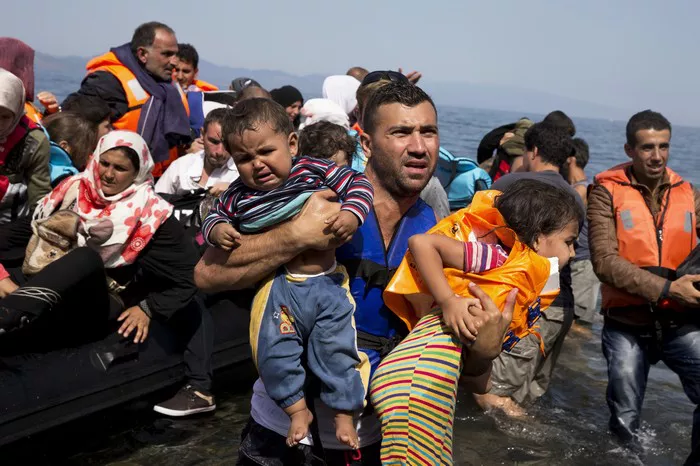In today’s globalized world, migration is a prominent issue that impacts societies, economies, and policies worldwide. One of the most contentious aspects of migration is the phenomenon of undocumented immigrants. Defined broadly as individuals residing in a country without legal authorization, undocumented immigrants often find themselves at the center of political debates, humanitarian concerns, and legal complexities. This article aims to provide a comprehensive exploration of what constitutes an undocumented immigrant, the factors contributing to their status, the challenges they face, and the legal frameworks that govern their presence.
Defining Undocumented Immigrants
An undocumented immigrant, also known as an illegal immigrant or an unauthorized immigrant, is an individual who resides in a country without legal residency or the necessary authorization from the government. This lack of legal status distinguishes them from legal immigrants who have obtained visas or residency permits through official channels. The term encompasses a diverse range of individuals, including those who have entered a country without inspection, overstayed their visas, or violated the terms of their legal status.
The status of being undocumented can arise from various circumstances:
Unauthorized Entry: Individuals who enter a country without going through official immigration procedures.
Visa Overstays: People who legally enter a country but remain beyond the expiration date of their visa or residency permit.
Failed Asylum Seekers: Individuals whose asylum applications were rejected but remain in the country.
Children of Undocumented Immigrants: Individuals born in a country to undocumented parents, often referred to as “birthright citizens” in some jurisdictions.
Factors Contributing to Undocumented Status
Understanding the factors contributing to undocumented immigration requires a nuanced analysis of socio-economic, political, and individual circumstances:
1. Economic Factors:
Labor Demand: Many undocumented immigrants are driven by economic opportunities not available in their home countries, often seeking low-skilled jobs in sectors such as agriculture, construction, and services.
Poverty and Lack of Opportunities: Economic disparities and lack of job prospects in home countries compel individuals to seek better livelihoods abroad, often through irregular means.
2. Political Factors:
Conflict and Instability: Political unrest, armed conflict, and human rights abuses in home countries may force individuals to flee and seek refuge in neighboring countries with better security and stability.
Repressive Governments: Citizens fleeing persecution or political repression may choose to seek asylum in countries where they believe they can find safety and protection.
3. Social Factors:
Family Reunification: Separated families may reunite through irregular means, with undocumented individuals seeking to join or support family members already residing in a destination country.
Networks and Support Systems: Established immigrant communities often provide social networks and support structures that facilitate undocumented migration and settlement.
Challenges Faced by Undocumented Immigrants
The experience of being undocumented presents numerous challenges that impact virtually every aspect of an individual’s life:
1. Legal Vulnerability:
Risk of Detention and Deportation: Undocumented immigrants live under constant threat of detection by immigration authorities, which can lead to detention and deportation proceedings.
Limited Legal Rights: Lack of legal status often means limited access to basic rights and protections afforded to legal residents, including healthcare, education, and social services.
2. Socio-Economic Marginalization:
Exploitation and Abuse: Undocumented immigrants are vulnerable to exploitation by unscrupulous employers who may offer substandard wages and working conditions.
Financial Instability: Limited access to formal employment and financial services restricts economic mobility and perpetuates cycles of poverty.
3. Social Exclusion:
Stigmatization and Discrimination: Negative stereotypes and prejudice against undocumented immigrants can lead to social exclusion and barriers to integration within communities.
Psychological Stress: Living in constant fear of discovery and deportation can have significant psychological impacts on individuals and families.
SEE ALSO: WHO WILL BE AFFECTED BY IMMIGRATION LAWS?
Legal Frameworks and Policies
The legal status of undocumented immigrants is governed by complex frameworks and policies that vary significantly between countries and regions:
1. Immigration Laws:
Entry and Exit Regulations: Laws governing the entry and exit of foreign nationals establish procedures for legal immigration and penalties for unauthorized entry.
Visa and Residency Requirements: Regulations stipulate criteria for obtaining visas, residency permits, and citizenship, delineating pathways to legal status for immigrants.
2. Enforcement Practices:
Border Control and Security: Governments employ border control measures, including physical barriers, surveillance technologies, and border patrols, to monitor and regulate immigration flows.
Detention and Removal: Immigration enforcement agencies detain and deport undocumented individuals found to be in violation of immigration laws, often following administrative or judicial proceedings.
3. Immigration Policies:
Amnesty and Regularization Programs: Periodic amnesty programs may grant temporary or permanent legal status to undocumented immigrants who meet specified criteria, facilitating their integration into society.
Pathways to Citizenship: Some countries offer pathways to citizenship through naturalization processes, enabling long-term residents, including undocumented immigrants, to acquire full legal rights and protections.
Public Discourse and Policy Debates
Public discourse surrounding undocumented immigration is characterized by diverse perspectives and policy debates:
Security Concerns: Advocates for stricter immigration controls argue that undocumented immigration threatens national security and sovereignty, advocating for enhanced border enforcement and immigration restrictions.
Humanitarian Considerations: Supporters of immigrant rights emphasize the humanitarian imperative of protecting vulnerable populations, advocating for comprehensive immigration reform and pathways to legal status.
Conclusion
Undocumented immigrants represent a complex and multifaceted aspect of contemporary migration, shaped by socio-economic, political, and legal dynamics. While the term “undocumented immigrant” often evokes polarized reactions and debates, understanding their realities requires a balanced consideration of the factors contributing to their status, the challenges they face, and the legal frameworks that govern their presence. Moving forward, addressing the issue of undocumented immigration necessitates comprehensive policy approaches that balance national security concerns with humanitarian considerations, seeking to uphold human rights while promoting lawful and orderly migration systems.
Through continued dialogue, informed policymaking, and international cooperation, societies can strive to address the complexities of undocumented immigration in a manner that respects human dignity, upholds the rule of law, and fosters inclusive and resilient communities.


